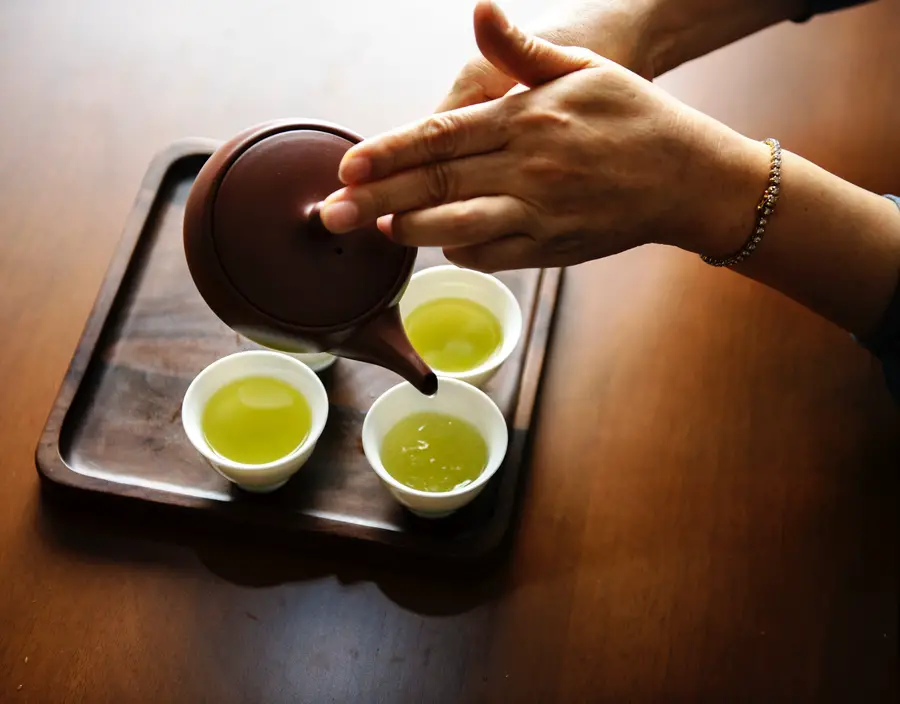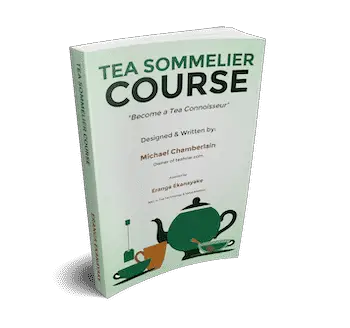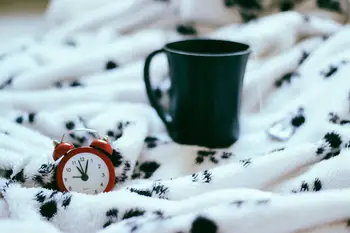Is it bad to drink tea at night? Well, for years I’ve always drunk tea in the evening, for much of that time it was mainly black tea. I didn’t ever think it was an issue, but in recent times, having explored tea further, I realized that actually, it was probably having more of an effect on me than I thought.
Is it Bad to drink Tea at night? Overall, it’s not bad to drink tea at night or before bedtime. Some teas contain ingredients that reduce stress and aid restful sleep. This varies depending on which type of tea you take, and the quantity. Let’s explore the different teas and their effects.
What I thought was just a poor night’s sleep, or where it took a while to drop off to sleep I think was actually fuelled by the black tea I’d been used to.
Not that I suffer from insomnia but we can all suffer an occasional ‘bad night’ and I found switching to other teas I believe has now aided my sleep. So I decided to look deeper into this.
Is it bad to drink tea at night?
Its been reported that around 30% of people suffer from insomnia in some form or another, whether that’s an inability to fall asleep, frequent waking in the night, or achieving a respectable amount of restorative, high-quality sleep. It’s good to know there are natural remedies out there. As I’ve been discovering tea is one of them, well some teas are…
All Tea Contains Caffeine
ALL tea that is officially tea is derived from the same plant, Camellia Sinensis. Camellia Sinensis inherently contains caffeine as a natural substance.
This is certainly not advisable if you want to get a good night’s rest. This is one of the main reasons you may find it difficult to sleep. Reducing Caffeine before sleeping is always going to facilitate better sleep.
Why Caffeine Is Bad Before Bed
Caffeine taken in moderation has a number of benefits. In recent years it’s been linked with the prevention of cancer.
Amongst other things, Caffeine, when drunk in large doses is believed to be responsible for a number of side effects. Effects such as increased heart rate, stomach irritation, nausea, and vomiting.
caffeine is a psychoactive stimulant. Because of this, it increases the ability to stay awake, increases attentiveness, the ability to focus, and general energy levels. that is until the crash happens.
Although the effects in tea are more gradual in your caffeine ‘rush’ and the crash is also more gradual, when Caffeine is drunk before bedtime, it can be the catalyst for additional side effects, mostly insomnia, and restlessness.
This is usually aimed at those drinking Coffee, as caffeine levels are greater, but can equally be leveled at those drinking tea – particularly if consuming large and strong amounts of it.
If you would like to know more about Caffeine levels in various teas with approximate levels in milligrams, then check out the infographic I added to this article on green tea for more details.
Black Tea Before Bed
Due to its increased oxidation process, Tea has one of the highest Caffeine levels of all teas. You should definitely reduce or stop your intake of Black Tea at least 1-2 hours before bedtime. In this category as well, I would definitely add Matcha Tea and Yerba Mate tea. These have caffeine levels around two-thirds that of Coffee, so add these to your no tea-before-bed list.
White Tea Before Bed
White tea is a low to mid-range tea for Caffeine levels, it has a huge number of benefits including reducing the risk of heart disease, it’s rich in antioxidants, for weight loss allegedly can combat skin aging, amongst other things.
It would seem that aiding sleep is not amongst its general list of benefits. So I’d also recommend steering clear of this one.
You can find out all you need to know about white tea here.
Green Tea Before Bed
Ah, now, green tea is a different matter, lower in Caffeine than drinks like Yerba mate, and slightly above white tea, and Tisanes. and with a huge amount of benefits largely attributed to its lack of factory processing after harvesting. Drinking green tea before bed has a number of positive effects.

Amino Acids
If you suffer from insomnia or other sleep-related issues, then Green tea might help, it contains L-theanine, which is an amino acid that contains a number of properties. The key features include anti-anxiety and relaxation.
L-theanine works by raising the responsiveness of the brain’s neurotransmitters – serotonin, GABA, and dopamine. This has been seen to be the case even when coupled with the lowest amount of caffeine detected in green tea.
When combined though, caffeine and L-theanine can increase your general performance throughout the day. The positive outcome of this is that not only will you perform better daily, but it will also reduce exhaustion. Being naturally tired- but not through exhaustion, can contribute to a more restful night’s sleep.
Part of the key is the quality of sleep you will have, not just the quantity. Some natural sleep supplements can sometimes leave you drowsy. However, L-theanine helps to improve overall sleep quality whilst keeping you feeling energetic during the day.
I’d recommend a green tea an hour before bed, or better still, two hours. I’ve been trialing this and whilst I’ve yet to notice any huge results myself I do feel more energetic by day and better rested each morning – but might that be the placebo effect?!
If you would like to know more about Caffeine levels in green tea with approximate levels in milligrams, then check out the infographic I added to this article for more details.
And here’s my article on green tea vs white tea so you can make other comparisons yourself.
Herbal Tea Before Bed
Herbal teas are not actually teas as they’re not from Camellia Sinensis. They’re made from roots, stems, and flowers of other flora and fauna. For this reason, although you may find trace elements of Caffeine in them, they are not considered to have Caffeine at all. They can, however, have other properties that aid a restful night, here are a few.
Some Teas That Are Beneficial Before Bedtime
Chamomile Tea Before Bed
For many years chamomile tea has been used as a natural remedy for such things as inflammation and anxiety. It’s also a natural remedy to aid restful sleep. Generally regarded as a mild, natural sedative, or tranquilizer.
Chamomile contains an Antioxidant called apigenin, which is found in abundance within the cells of chamomile tea. Apigenin acts to bind to specific receptors in the brain, the receptors that are thought to decrease anxiety and initiate sleep.
You can read more about caffeine in Chamomile tea here.
Valerian Tea Before Bed
Made from the roots and stems of the valerian plant officially called Valeriana Officinalis, commonly grown in north and south America but is actually native to Europe and China.
Widely regarded as the go-to sleep potion, which is also available to ingest in Pill or Capsule form. Because of its strong sedative quality, it’s not advisable to mix them with any alcohol or other calming teas such as Chamomile. However, due to its ‘woody’ taste, you may want to add a little honey to sweeten the flavor.
Here’s my complete guide to Valerian Tea.
Lavender and Lemon Balm
Well known to reduce stress and anxiety, Lemon Balm is part of the mint family and is a perennial herb known for its stress-relieving properties. As the name suggests, it has a strong lemon aroma.
When coupled with Lavender, another stress-relieving plant it can make a great cocktail to help reduce stress and aid restfulness. Great with Iced Tea, I’ll be trying this one out very shortly.
Related Caffeine articles for is it bad to drink tea at night
You might also be interested in reading about caffeine levels in various types of tea…
Is It Bad to Drink Tea at Night – Conclusion
So yes you can drink tea at night, and before bedtime, as we’ve shown there are actually real benefits to drinking tea in the evening. The word of caution here I think is just to steer clear of those that contain higher amounts of Caffeine and where they perhaps don’t benefit your sleep pattern.
Researching this has certainly helped me, I hope it’s been a benefit to you too. Don’t forget to check out my tea sommelier course to take your tea a huge steep forward!

Take the fast track and become a tea connoisseur
Whether for enjoyment or considering a career as a tea sommelier. This course has everything you need to enhance your tea knowledge and tea-tasting skills.
This course keeps it simple with step-by-step tea tasting and easy reference guides
For pleasure, or as a precursor to a career in the tea industry. Find out what tea sommelier actually does, their career paths, and what they earn.

Find out more about the Teahow Tea Sommelier Course!

Green tea generally has more caffeïne than white tea.